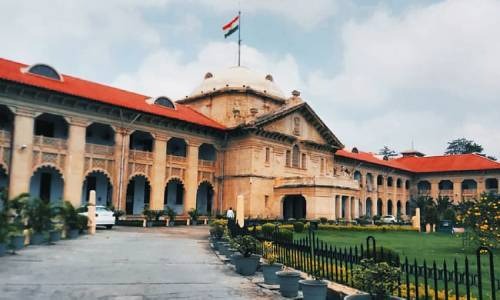
Case Title: Prabhakar Pandey V. The State Of U.P. And Others
The Allahabad High Court observed that while exercising the revisional power, the Sessions Court cannot quash the cognizance and summoning order passed by the Magistrate as its revisional jurisdiction is very limited.
It was held that, "On exercising the revisional power, learned Sessions Court cannot quash the cognizance and summoning order passed by the Magistrate, in exercising its revisional power, jurisdiction of Sessions Court is very limited, and the Sessions Court can only examine the illegality, irregularity and impropriety of the order passed by the Magistrate. If the Sessions Court find any illegality, irregularity or jurisdictional error then Sessions Court cannot quash the proceedings but the revisional court have only power to issue direction by pointing out the error regarding the order passed by the Magistrate. Therefore, order of learned Sessions Court, is wholly erroneous and against the set principles of law.”
The Court also referred to the case of Gangadhar Janardan Mhatre v. State of Maharashtra and others, in which the Apex Court reiterating the above view stated:
“The Magistrate can ignore the conclusion arrived at by the Investigating Officer and independently apply his mind to the facts emerging from the investigation and take cognizance of the case, if he thinks fit, exercise of his powers under Section 109(1)(b), CrPC and direct the issue of process to the accused.”
Further reference was made to Pakhando and others V. The State of U.P. wherein it was held that the magistrate shall have following four courses and may adopt any one of them:
(I) He may agree with the conclusions arrived at by the police, accept the report and drop the proceedings. But before doing so, he shall give an opportunity of hearing to the complainant.
(II) He may take cognizance under Section 190(I)(b) and issue process straightaway to the accused without being bound by the conclusions of the investigating agency, where he is satisfied that upon the facts discovered or unearthed by the police, there is sufficient ground to proceed; or
(III) He may order further investigation, if he is satisfied that the investigation was made in a perfunctory manner.
or
(IV) He may, without issuing process or dropping the proceedings decide to take cognizance under Section 190(I)(b) upon the original complaint or protest petition treating the same as complaint and proceed to act under Sections 200 and 202 Cr.P.C. and thereafter decide whether complaint should be dismissed, or process should be issued.

